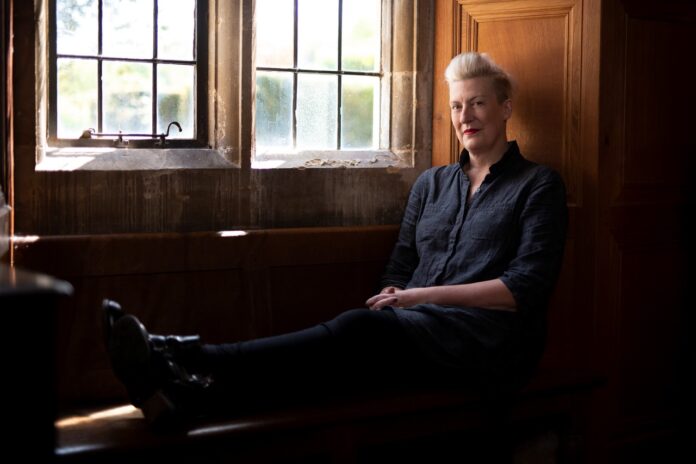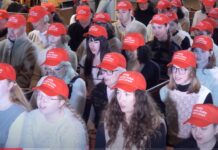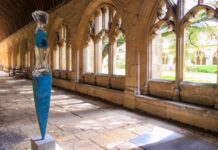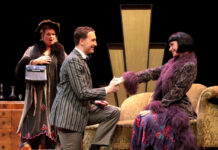It may not be what was originally envisaged but, against all the odds, the 19th Oxford Lieder Festival is all set to go – and what a festival it promises to be.
Connections Across Time: A Brief History of Song runs from 10th to 17th October and features the usual array of world-class singers, musicians and emerging artists in a packed programme that includes song recitals, chamber music recitals, artist Q&As, talks, masterclasses and study events.
The only difference this year is that it’s all online, so you can enjoy events from your sofa, with glass of wine or cup of tea in hand, naturally.
All events are ticketed and will be livestreamed from a variety of venues in and around the city, with the added bonus of audiences being able to access the event and a selection of accompanying materials for up to two weeks afterwards.

It’s an excitingly bold, innovative approach to digital performing, ensuring that the festival can go ahead in these strangest of times.
“I’m relieved to have this festival programme out and sorted,” says artistic director Sholto Kynoch, who founded the festival in 2002. “It’s been a bit of a marathon!”
Across the eight days, the festival will explore connections between composers across the centuries, from the 14th century to the present day, and will include three world premieres.
Favourite names from past festivals include Benjamin Appl, Ian Bostridge (this year’s artist in residence), Dame Sarah Connolly, Lucy Crowe, James Gilchrist, Julius Drake, Christoph Prégardien, Carolyn Sampson, Kitty Whately and Roderick Williams.

As always, though, there are also young and emerging artists, who are traditionally given a platform at the festival – something that Sholto feels is particularly vital this year.
“We always have a balance of young artists, including our own competition winners, alongside all these starry names,” he says.
READ ABOUT THE ONLINE FESTIVAL HERE: http://551.326.mywebsitetransfer.com/oxford-lieder-festivals-pioneering-approach-boasts-35-classical-music-events-all-live-streamed-from-oxford/
“One thing I’ve added in this year, which I think is an important gesture, is the emerging artists slot at the start of every main concert. So every evening we’re going to have 15 minutes of Schubert, regardless of the programme that follows, from an emerging artist.
“I think giving some kind of platform to emerging artists is important. It’s a short thing, it’s not going to solve anybody’s problems, but it’s a platform, it’s a fee, it’s a morale boost, and it’s been very warmly received by the people taking part.
“They get to work with some great pianists, and they forge new partnerships. I think it’s going to work very well, and I like the idea of having a sort of mini-series of Schubert songs every night. I don’t think anyone will object to hearing 15 minutes of Schubert!”

One of the lovely things about the Oxford Lieder Festival has always been the variety of venues, from the Holywell Music Room to college chapels, museums and other interesting spaces.
“For people who can’t usually make it to Oxford this has real appeal,” Sholto says. “They get to look inside colleges, libraries and other special spaces.”
The advantage of going digital is that the festival can take audiences into venues that are not normally open to the public – such as the Huxley Room at the Natural History Museum, location for the great Huxley-Wilberforce debate about Darwin’s theory of evolution in 1860. This will be the venue for one of the festival’s study events.
“It is no longer a publicly accessible room and not something we could usually do for our concerts,” says Sholto.
“We’re also going to be in the Ashmolean, filming in the galleries and a bit behind the scenes, showing objects that aren’t necessarily on display and likewise in the Bodleian, showing things like book stacks and special manuscripts.

“Another study day we’re talking about Voltaire, Rousseau and the Enlightenment, and how they’re important to the history of song. We’re doing that in the Upper Library at Queen’s College, an amazing thing that we couldn’t usually do.
“So things like that I think are really exciting and an added bonus for people thinking of coming to the festival.”
For a festival that is normally based entirely in Oxford, an unusual venue this year is Broughton Castle, near Banbury. The castle is currently closed to the public until April 2021, so a chance to take a peep inside is another bonus for festival audiences.
The castle will play host to two concerts on Saturday 10th October – Time after Time with tenor James Gilchrist and lutenist Elizabeth Kenny, and Love Songs of Guillaume de Machaut with the Orlando Consort.
“I ummed and aahed a little about Broughton Castle because it’s not in Oxford,” admits Sholto. “But we’ve got these two programmes and it will be an absolutely perfect, magical location to do them. It’s a magnificent space, so it’s a really wonderful place to have concerts.”
The majority of the concerts, though, will take place in Oxford.

“The Holywell’s our base for most of the live concerts, and that’s where the live Q&As for the study events will come from.
“We’re going to set it up to look fantastic and make a really superb venue for recording. It’s not an easy space to film in, but we’re going to make it look great.”
The study events will be the only part of the festival that are not completely live, for logistical reasons.
“We’ve got a series of study events running through the festival called ‘Song Connections’, and that is presented with TORCH (The Oxford Research Centre for Humanities) in collaboration with other institutions, such as the Botanic Garden,” explains Sholto.
“We’re going to pre-record the contents of those events, but we’re going to have the speakers available for a live Q&A at the end of each session. People can email or tweet their questions during the event itself, and we’ll have a curated Q&A at the end where we try to answer as many of those questions as we can.
“This means we can film the study events in special venues where it’s not feasible to do live streaming.”
Sholto is delighted that this digital festival manages to capture so much of what the Oxford Lieder Festival is all about
“There are some really exciting people we’ve not had before. There’s a lot of familiar names in there as well, which I think is what people want. Ian Bostridge, our artist in residence, is coming for four days, doing two concerts, a masterclass and a talk, and it’s fantastic to have him around.
“The themes on particular days are, I hope, really appealing to people, and the study days have lots of interesting themes too. So we’re building on things we’ve done in the past but even more so than usual.”
Ever the optimist, Sholto is also now busy planning for the 20th Oxford Lieder Festival in 2021.
“We’re working on the assumption that all will be back to normal. This festival has been complex, to say the least. I’m not where I would ideally like to be, but I’m confident that we can still present something amazing next year. We’ve got lots of exciting plans.”
The 19th Oxford Lieder Festival runs from 10th-17th October. For full details, visit https://www.oxfordlieder.co.uk/events/forthcoming.
NICOLA LISLE


















